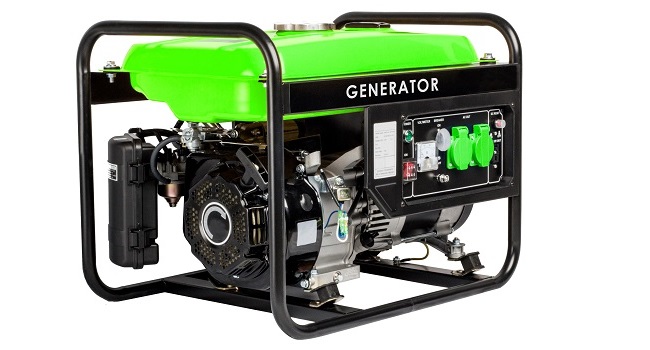Not all areas are fortunate enough to experience continuous power supply. Some are faced with regular power outages, while others aren’t connected to the grid. However, this doesn’t mean that people residing in such areas should experience challenges powering their homes, appliances, and tools. This is because you can easily access a generator to supply the much-needed power.
There are different types of generators on the market, including diesel generators. Diesel generators are powerful, long-lasting, and efficient. They’re also safer and require less maintenance. However, before investing in one, it’s essential to understand every aspect because these generators also have drawbacks.
Luckily, this article explains more about the advantages and disadvantages associated with diesel generators to help you make an excellent choice. But before that, here’s a tip for prolonging your diesel generator’s lifespan:
Maintenance
Maintenance is the key to keeping your generator working at its best. According to most manufacturers, you should follow the maintenance schedule specified for your generator. You should also perform maintenance whenever you think something’s wrong with your generator and after a significant weather event. For example, you should perform maintenance after a storm to prevent clogging. Suppose you can’t handle the task. Consider hiring a professional to avoid making a mess out of the generator.
Pros Of Diesel Generators
If you’re looking forward to investing in a diesel generator, here are some things you can benefit from:
Low Maintenance
Compared to other options, diesel generators like those from PR Power require low maintenance. This is because diesel generators need fewer components to start. With a diesel generator, you don’t have to worry about replacing spark plugs or rebuilding carburetors as with gasoline generators.
Efficiency
It’s vital to consider fuel consumption when purchasing a generator. Though diesel generators are more costly than alternatives, they consume less fuel for a similar task. This means you don’t refuel a diesel generator more often, saving you money in the long run.
Excellent Power Output
Diesel generators are designed to handle larger power loads. They also last longer regarding power output. For this reason, diesel generators are ideal for areas with unreliable or no off-grid power backups.
Durability
Diesel generators are more durable compared to alternatives. These generators are robust and designed to withstand excessive use. Diesel generators also run cooler than natural gas, allowing them to last longer. Nevertheless, for a diesel generator to last long, you must care for and maintain it correctly.
Safety
Unlike diesel, gasoline generators require more fuel to run. This means you’ll probably refuel a gasoline generator more than a diesel one. Besides regular refueling costing you more money, it exposes you to a highly flammable fuel. As a result, there are high chances of fire accidents.
On the other hand, diesel generators run longer on less fuel. Besides, they consume less flammable fuel than gasoline generators. With a diesel generator, you can rest easy knowing that the chances of fire accidents are reduced by a significant margin.
Higher Resale Price
Investing in diesel generators gives you an upper hand when reselling. If you want to change or upgrade your diesel generator, ensure it’s in good working condition, and you might sell it at a higher price than you anticipated. Many people will pay more for a used diesel generator due to its prolonged life span.
Versatility
Besides durability and low maintenance, diesel generators are highly versatile. Their long running time and less fuel consumption enable them to work in many fields, including homes, companies, and off-grid projects. Many people depend on diesel generators to power buildings and tools.

Cons Of Diesel Generators
Everything is two-sided, and diesel generators aren’t exempted. Despite the above-discussed advantages, these diesel generators come with the following drawbacks:
Size
Unlike petrol, diesel generators are much bigger and heavier. These generators come with extensive parts and tanks, meaning they might be challenging to move from one place to another. Unless you have proper planning about moving your generator, consider other alternatives, especially if you move regularly; hence, it might not be an ideal portable power option. However, a diesel generator might be a better option if you have no plans to move.
Noise Pollution
While newer diesel generators don’t produce much noise, older and cheaper ones do. It’s, therefore, vital to consider your neighborhood before investing in one. You might want to stay clear of diesel generators if you reside in a densely populated or noise-regulated area.
Emission
Unfortunately, diesel generators produce toxins such as carbon dioxide, particulate matter, and nitrogen oxide. Once these toxins are released into the atmosphere, they can negatively impact human, plant, and animal health. If you’re concerned about environmental well-being, it might be wise to consider alternatives.
Cost
Though diesel generators don’t require frequent maintenance and use less fuel, they typically don’t come cheaply. Therefore, if you’re looking to invest in a cheaper generator, diesel generators might not be your best option.
Installation
Installing a diesel generator involves working with lots of tiny parts. For this reason, the installation is best left to professionals who perform the task at a fee. Again, this procedure affects the general cost of investing in a diesel generator.
Fuel Cost
Another setback of investing in diesel generators is the fuel cost. This cost is continuously affected by the current rates; hence, sometimes, you’ll pay more to power your generator. Suppose there’s a fuel shortage. In that case, your generator won’t help during that period. Fuel cost and availability are essential factors to consider when choosing a generator.
Conclusion
Diesel generators are among the most used power backups. They’re reliable, strong, and durable. Diesel generators are also efficient and cost-effective when it comes to fueling. These factors have led many people to invest in them, primarily due to their prolonged lifespan.
Nevertheless, diesel generators are not without cons. They come with a fair share of disadvantages. For example, these generators are noisy (though some new versions produce less noise), typically expensive, and challenging to install. That said, it’s vital to study all its aspects before deciding whether or not to invest in a diesel generator.
































